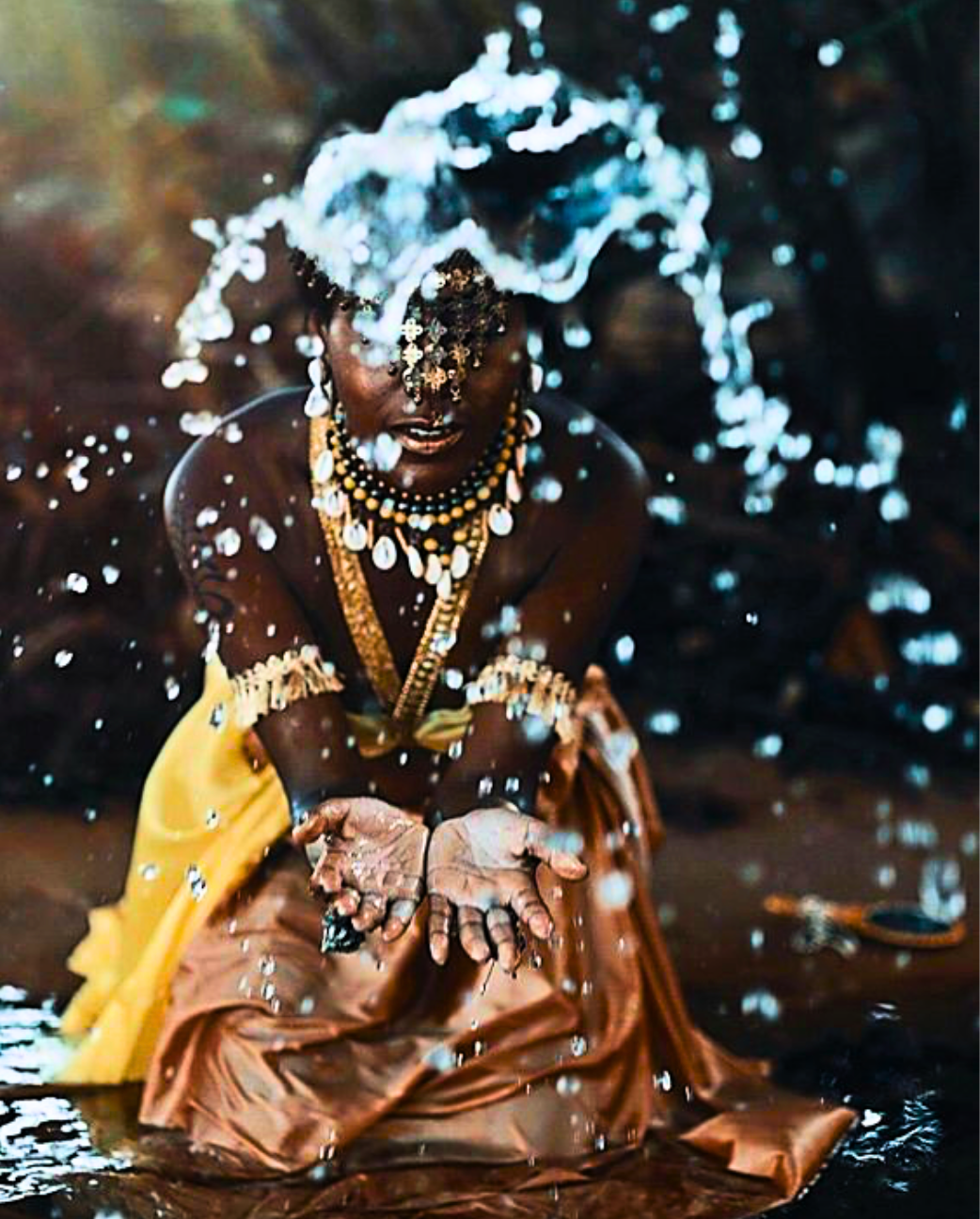The syncretism of African spiritual traditions and Catholicism has given birth to a fascinating and rich religious tapestry, particularly evident in the veneration of the Orishas and the Seven African Powers. These powerful deities from the Yoruba religion of West Africa have been intertwined with the saints of the Catholic Church, creating a unique blend of beliefs and practices. This post delves into the origins, characteristics, and connections between the Orishas and Catholic saints, shedding light on the spiritual and cultural significance of this syncretism.
The Orishas are deities of the Yoruba religion, each representing different aspects of life, nature, and human experience. They serve as intermediaries between the Supreme Being, Olodumare, and humanity. Each Orisha has its own distinct personality, attributes, and areas of influence. Here are some of the prominent Orishas:
Eleguá (Elegba, Eshu): The messenger of the gods, guardian of the crossroads, and opener of doors. Eleguá is associated with Saint Anthony or the Holy Child of Atocha in Catholicism.
Obatalá: The father of all Orishas and creator of humanity, associated with purity and wisdom. Obatalá is linked to Our Lady of Mercy or Jesus Christ.
Yemayá (Yemoja): The mother of all living things, goddess of the sea and fertility. Yemayá is connected to Our Lady of Regla or the Virgin Mary.
Oshún (Oxum): The goddess of love, beauty, and rivers. Oshún is associated with Our Lady of Charity or the Virgin of Caridad del Cobre.
Shangó (Changó): The god of thunder, lightning, and fire, representing virility and passion. Shangó is linked to Saint Barbara or Saint Jerome.
Oyá (Oya): The goddess of winds, storms, and transformation. Oyá is associated with Saint Theresa or Saint Catherine.
Orúnmila (Orunla): The god of wisdom, divination, and destiny. Orúnmila is connected to Saint Francis of Assisi or Saint Dominic.
The Seven African Powers are a group of Orishas revered together for their combined strength and protection. They are often invoked in times of need, offering guidance, healing, and support, similar to the invocation of 7 Archangels.
The blending of Yoruba religion and Catholicism occurred primarily during the transatlantic slave trade, when African slaves were brought to the Americas. To preserve their spiritual practices, enslaved Africans syncretized their Orishas with Catholic saints. This allowed them to continue worshiping their deities under the guise of Catholicism, which was imposed upon them by their captors.
Eleguá and Saint Anthony
Eleguá, the opener of roads and guardian of the crossroads, is syncretized with Saint Anthony of Padua. Saint Anthony is revered as a miracle worker and protector, reflecting Eleguá’s role in safeguarding paths and opportunities.
Obatalá and Our Lady of Mercy
Obatalá, the father of all Orishas, is associated with Our Lady of Mercy (La Virgen de la Merced) or Jesus Christ. His attributes of wisdom, creation, and purity align with the qualities of mercy, compassion, and salvation represented by these Catholic figures.
Yemayá and the Virgin Mary
Yemayá, the nurturing mother and goddess of the sea, is linked to the Virgin Mary. Both figures embody maternal protection, fertility, and the life-giving properties of water.
Oshún and Our Lady of Charity
Oshún, the goddess of love, beauty, and rivers, is associated with Our Lady of Charity (La Virgen de la Caridad del Cobre), the patroness of Cuba. Both are symbols of love, generosity, and the bounty of nature.
Shangó and Saint Barbara
Shangó, the god of thunder and fire, is syncretized with Saint Barbara. Saint Barbara is invoked for protection against lightning and fire, paralleling Shangó’s control over these elements.
Oyá and Saint Theresa
Oyá, the goddess of winds and storms, is linked to Saint Theresa. Both figures represent transformation, powerful change, and the forces of nature.
Orúnmila and Saint Francis of Assisi
Orúnmila, the god of wisdom and divination, is associated with Saint Francis of Assisi. Saint Francis is known for his wisdom, humility, and connection to the divine, mirroring Orúnmila’s attributes
The syncretism between the Orishas and Catholic saints highlights the resilience and adaptability of African spiritual traditions. This blending allowed enslaved Africans to maintain their cultural identity and spiritual practices in the face of oppression. Today, the veneration of the Orishas and the Seven African Powers continues to be a vital part of Afro-Caribbean religions such as Santería (Lukumi), Candomblé, and Vodou.
These practices have also fostered a sense of community and continuity among descendants of enslaved Africans. The rituals, stories, and symbols associated with the Orishas provide a link to ancestral heritage and a source of empowerment and guidance.
The Orishas and the Seven African Powers, with their deep connections to Catholic saints, exemplify the rich and dynamic nature of spiritual syncretism. This blending of beliefs not only preserved African religious traditions but also enriched the cultural and spiritual landscapes of the Americas. By understanding these connections, we gain insight into the resilience and creativity of the human spirit in the face of adversity. The Orishas and the Seven African Powers continue to inspire and guide those who seek their wisdom and protection, embodying a timeless bridge between worlds and cultures.


1 comentario
Thank you, Stella Maris for explaining in detail the connection between the Seven African Powers and the Catholics Saints. I am very much interested in learning more about Seven African Powers and the connection with the Catholic Saints. But to do good always do good and God’s eyes.